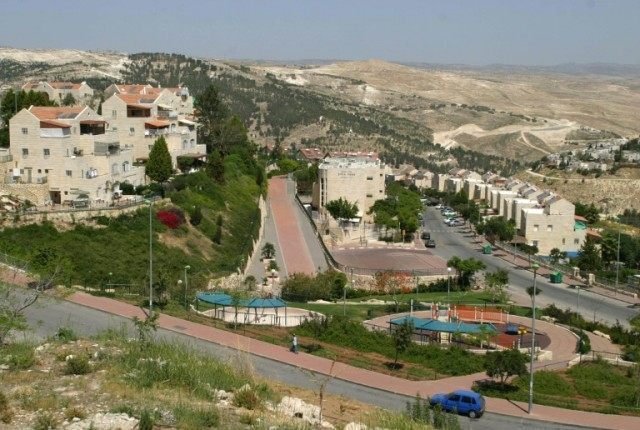TEL AVIV – The United Nations Human Rights Council on Monday will debate a resolution that calls on member states to boycott Jewish settlements, the Jerusalem Post reported.
The UNHRC is often charged with having an extreme anti-Israel bias.
The resolution would include preventing the export of West Bank products to UN member states as well as creating a database of all Israeli businesses operating over the pre-1967 lines in the West Bank, eastern Jerusalem, and the Golan Heights.
It is one of five anti-Israel resolutions that the UNHRC will discuss as part of its 31st session, which ends March 24.
Four of the resolutions, including one that calls on Israel to return the Golan Heights to Syria, have already been posted on the UNHRC website. The fifth one is on the topic of settlements. The NGO UN Watch posted a draft of the resolution, which urges all states “to ensure that they are not taking actions that either recognize or assist the expansion of settlements or construction of the wall in the Occupied Palestinian territory, including east Jerusalem.”
In the draft, the UNHRC explained that member states should be “preventing any products originating in settlements in the occupied Palestinian territory, including east Jerusalem, from entering their markets, consistent with their obligations under international law.”
The debate will be held under Agenda Item 7, which mandates a debate on Israel at every council session. Israel is the only country for which such a mandate exists.
A group of representatives from pro-Israel NGOs, including StandWithUs, the World Zionist Organization, the Israel Allies Foundation, and the World Union of Jewish Students, plan to rally outside the UNHRC building in Geneva while the Agenda 7 debate takes place.
Yesh Atid party leader Yair Lapid plans to call on UN member states to stop funding the human rights body.
“The UNHRC lost its legitimacy long ago,” he said on Sunday, noting that the organization of 47-member states was marking its 10th anniversary this year.
Since the council’s inception it has issued 62 resolutions against Israel, but only 55 for all other countries in the world.
“Tomorrow, the council will meet to discuss a series of anti-Israel resolutions and we will stand opposite with a show of force of hundreds of people from across Europe. We will make our voices heard. We will be the voice of Israel, of our soldiers, of the victims of terrorism and their families – because we cannot be silent any longer,” he said.
“In the past decade the council has condemned Israel more times than all the other countries of the world combined; that’s hypocrisy. It is an anti-Semitic organization which no longer even pretends to act according to the facts,” Lapid added.
During the March session, the UNHRC had only one resolution on Syria and one on Iran.
Lapid noted the audacity of debating anti-Israel resolutions amid the current wave of Palestinian terrorism, in which Israelis are being attacked in knife, car-ramming, and gun attacks on an almost daily basis.
“The UN is giving backing to the murderers instead of the victims. I’m traveling to Geneva because I believe that we should stand up for our rights. I believe that we have every reason to be proud of Israel and our soldiers,” he said.
The five resolutions on Israel and the Palestinians, filed by Pakistan on behalf of the Organization of Islamic Cooperation, named Israel as the aggressor and the Palestinians as the victim.
The settlement resolution draft included a stipulation that Israelis be banned from moving to the West Bank and that natural growth in Jewish settlements should be prevented.
It also noted that that the UNHRC did not recognize the Israeli concept of “state land” in the West Bank and called on the country to stop expropriating Palestinian property.
It further stated that the database on settlement businesses should be updated annually.
One of the other resolutions called on Israel to halt its demolition of unauthorized Palestinian structures and homes, and said Israel should “facilitate the return of those Palestinian communities already subjected to forcible transfer or eviction to their original dwellings and to ensure adequate housing.”
The UNHRC on Monday will also investigate Israeli actions over the pre-1967 lines compiled by the UN Secretary-General and the High Commissioner for Human Rights, the report said.

COMMENTS
Please let us know if you're having issues with commenting.